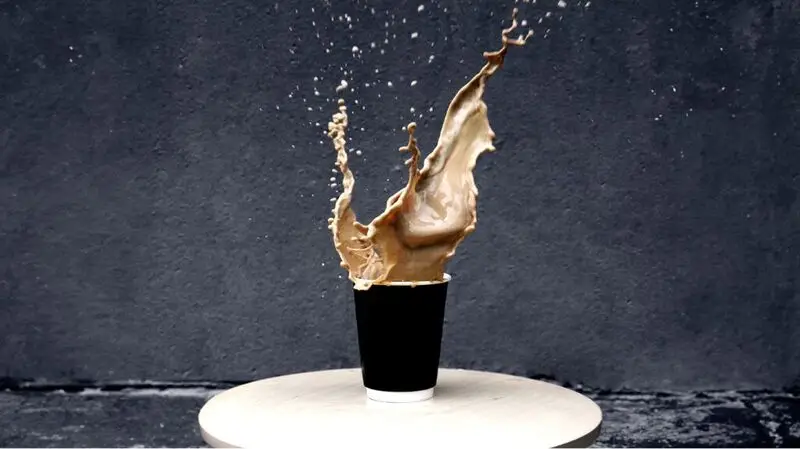
- Although there are many medications to treat depression, they do not work for everyone.
- For those with treatment-resistant depression, ketamine or electroconvulsive therapy (ECT) can be effective — and new research has found that these work by triggering adenosine surges in the brain.
- Caffeine blocks adenosine receptors, and therefore might reduce adenosine, but regular coffee drinking appears to protect against depression — the so-called coffee paradox.
- Now, researchers are investigating how to solve this paradox — by reducing caffeine before treatment while still getting coffee’s protective effects.
According to the
“Ketamine and electroconvulsive therapy (ECT) are mainly used when standard antidepressant medications haven’t worked, which is called treatment-resistant depression. Surprisingly, almost half of people diagnosed with depression may fall into this category, meaning a substantial number don’t get enough relief from typical medications and might be considered for these advanced treatments.”
— Ma-Li Wong, MD, PhD, Psychiatrist, Genomic Press, New York, co-author of Adenosine as the metabolic common path of rapid antidepressant action: The coffee paradox.
And although ketamine or electroconvulsive therapy (ECT) can be effective for those who do not respond to other treatments, scientists have long been unable to discover why.
Now, researchers have discovered that their antidepressant effect is due to triggering surges of adenosine — a signalling molecule in the human body that performs many essential functions, including dilating blood vessels, regulating the
In their study, published in
“The discovery that adenosine signaling drives the antidepressant effects of ketamine and ECT is a big deal. It pinpoints a ‘common pathway’ in the brain’s biology that helps explain why these therapies can work quickly when others fail. This opens doors for developing new treatments that act on adenosine, potentially giving us safer and more scalable ways to help people with depression.”
— Ma-Li Wong
Following this study, a commentary in Brain Medicine has highlighted the role of caffeine in depression.
The so-called coffee paradox outlines how caffeine appears to protect against depression, but blocks adenosine receptors. The authors question how caffeine’s interactions with adenosine receptors might impact these treatments, calling for further research into the mechanisms involved.
In their adenosine study, the researchers used genetically encoded adenosine sensors to detect changes. They injected mice with a subanaesthetic antidepressant dose of ketamine (10 mg /kg), then monitored levels of adenosine in their brains.
Following injection, they detected a rapid and sustained increase in extracellular adenosine in the medial pre-frontal cortex and hippocampus, two areas of the brain that are associated with major depressive disorder.
When researchers depleted or blocked adenosine receptors, the ketamine had no effect, showing that adenosine surges were causing the antidepressant effect.
They also demonstrated that acute intermittent hypoxia (aIH), a noninvasive method involving controlled oxygen reduction, had a similar antidepressant effect, also by triggering adenosine signalling.
Caffeine is the world’s most commonly consumed psychoactive drug, and it is an adenosine receptor antagonist, so could it impede ketamine, ECT, and aIH treatments?
“Caffeine blocks adenosine receptors,” Wong told Medical News Today, “and research shows this can actually interfere with the antidepressant effects of ketamine and ECT—at least in lab animals, and likely in humans too.”
The paradox“So, regular coffee drinking might blunt the full benefit of these treatments, although it’s important to note that coffee’s long-term effect on depression seems to be a bit protective overall (probably through other mechanisms as well). The story isn’t completely clear yet, but if a treatment specifically relies on adenosine surges, caffeine theoretically could get in the way.”
— Ma-Li Wong, MD, PhD
In their commentary, Wong and Julio Licinio state that the discovery of adenosine surges raises questions about patterns of caffeine consumption in treatment-resistant depression. They ask whether chronic caffeine use has a protective effect and whether acute use might impede response to ketamine or ECT treatments.
They state that regular coffee consumption has been shown, in epidemiological studies, to reduce the risk of depression by up to 25%. But for those with treatment-resistant depression, could it reduce the efficacy of treatment?
In regular caffeine users, the adenosine receptors are upregulated, meaning that more are working at any one time, which could explain why regular coffee consumption has been seen to reduce depression risk in some studies.
However, they suggest that, while habitual coffee consumption may be beneficial, consuming caffeine in the hours before ketamine or ECT treatment may reduce its effects.
“The science is evolving fast. Adenosine is emerging as a central player in rapid antidepressant effects, and lifestyle factors like caffeine use might matter much more than we used to think. Anyone considering ketamine or ECT might want to ask their mental health team about caffeine beforehand, and keep an eye out for new developments in this exciting area.”
— Ma-Li Wong
Wong advised:
“If someone is scheduled for ketamine or ECT, it’s sensible to avoid caffeine beforehand. There aren’t official guidelines, but based on how long caffeine stays in your system, skipping coffee or energy drinks for at least a full day (about 24 hours) before treatment is a cautious approach that clinicians may recommend.”
However, she cautioned that further research is vital to answer the questions they raised:
“What’s really needed now are clinical studies directly testing how caffeine intake affects the success rate of ketamine/ECT in humans. It would also be useful to clarify the ideal ‘wash out’ period for caffeine and to explore therapies that work with, not against, adenosine signaling. Understanding individual differences—like genetics or metabolic rate—could help tailor future treatments as well.”





